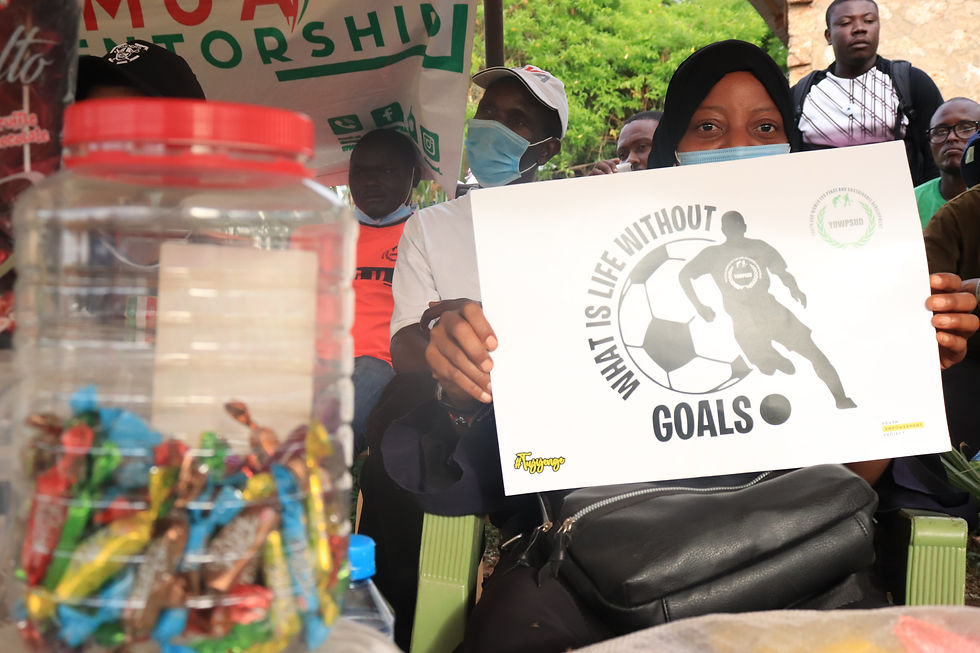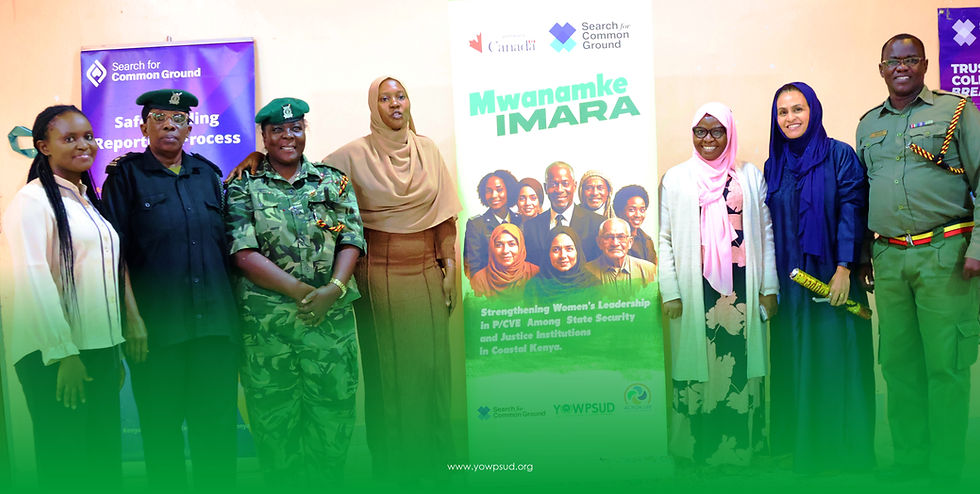"Game Changers: Empowering Youth through Sports for Peace and Development"
- yowpsudorg

- Jun 10, 2023
- 2 min read
Sports for Peace: Empowering Youth and Building Bridges

The role of youth in peace building and engaging with sports is crucial and has a significant impact on fostering peace, social cohesion, and community development. YOWPSUD has been using this as an approach to make youth less vulnerable from the underlying community risks. In the last 3 years of engaging with over 100 youth of Kilifi County in Community Resilience and Peace Building Programs, here are some key highlights on how the youth have taken their role in peace building through sports:

Agents of change
The youth have shown their potential to be powerful agents of change in their communities. By actively participating in sports activities, demonstrating leadership in different perspectives, promoting positive values, and inspiring their fellow youth to embrace peace and tolerance. Over 60% of the youth in the program, have involved themselves in peace-building initiatives showing that they are committed to creating a better future and can be influential role models for their peers.

Fostering social cohesion
Through Sporting events, YOWPSUD has managed to unite different "Maskanis," individuals and communities by creating a sense of belonging and common purpose. The empowered youth learnt to work as a team, respect each other's differences, and develop friendships based on shared goals and experiences. Through this, the youth realized the sense of unity and solidarity beyond YOWPSUD programs promoting sustainable social cohesion in the wider society.

Teaching conflict resolution and peace skills
The Sporting events offered opportunities for young people to learn important conflict resolution and peace skills. Through sports, they developed skills such as communication, teamwork, empathy, and resilience. These skills are essential for peaceful coexistence and were easily transferred to amongst the youth.

Empowering marginalized youth
YOWPSUD's Sporting events provided a platform for marginalized and disadvantaged youth to express themselves, build self-confidence, and overcome barriers. Community youth had the opportunity to showcase their talents such as music performances, dancing, acrobats etc. The youth gained a sense of achievement, develop leadership skills, and challenge social inequalities. This empowerment contributed to their personal development and enable them to become agents of change in their communities.

Reducing violence and crime:
Engaging young people in sports served as a positive alternative to violence and crime. This provided opportunities for recreation, skill-building, and personal growth, the sporting event diverted youth from negative influences and risky behaviors. The sporting programs contributed to reducing violence in the targeted communities by offering a safe and structured environment for young people to channel their energy and aspirations.

Creating opportunities for reconciliation:
In post-conflict or divided societies, the structured sporting events played a significant role in fostering reconciliation and healing of different Maskanis. This helped in bridging the gap between different maskanis and community set ups to promote promote forgiveness, and create spaces for dialogue and understanding. This contributed to long-term peacebuilding and social integration.
In maximizing the impact of youth engagement in sports for peacebuilding, it is important to ensure inclusivity, gender equity, and the active participation of young people in the design and implementation of sports programs. Providing access to resources, training, and infrastructure is also crucial to enable sustainable sports initiatives that contribute to peace and social development.



This is way motivative to the youths....